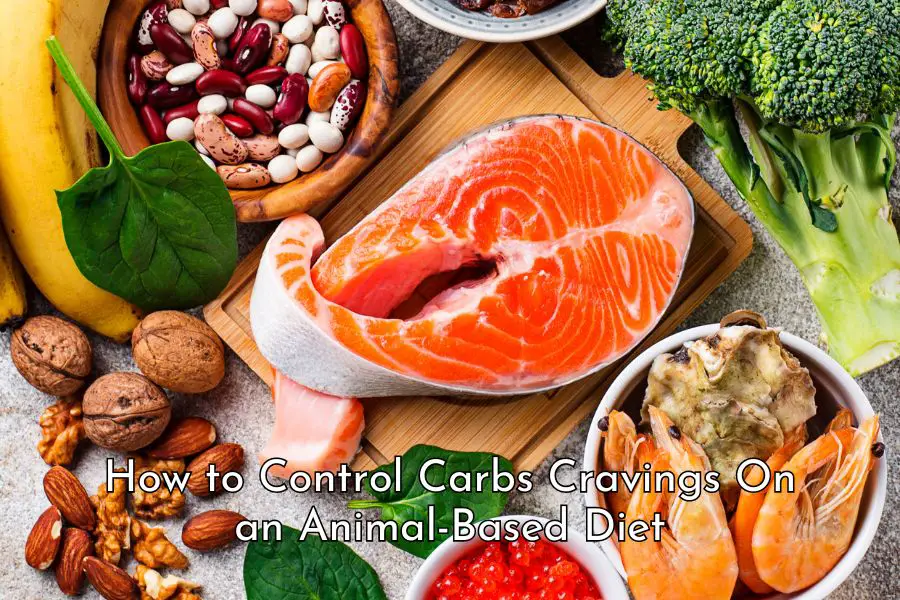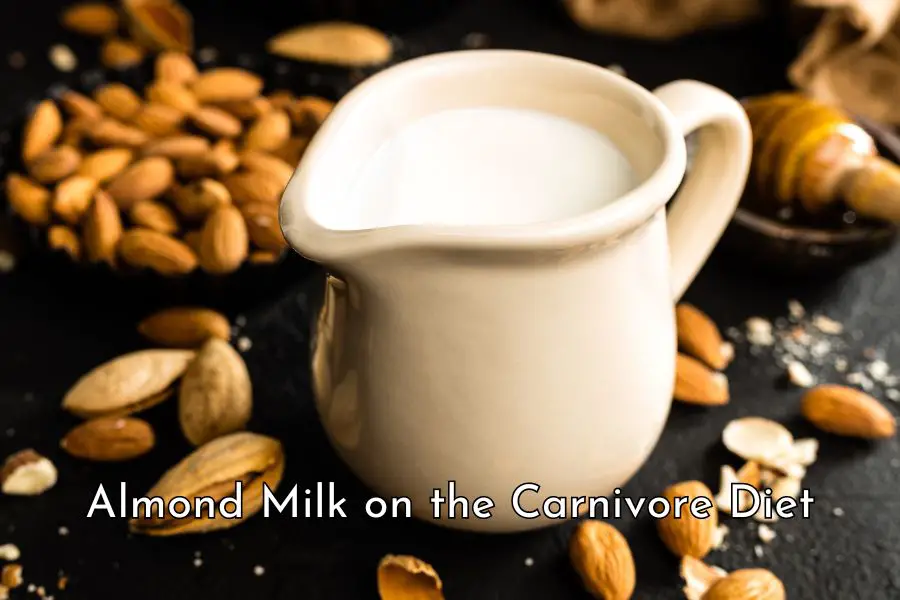Diet Coke has zero calories and zero sugar while tasting refreshing with a touch of sweetness and giving you the illusion of an energy boost. Technically not a carnivore food or drink but is it still okay to have Diet Coke in moderation on the carnivore diet?
In my opinion, you should not drink Diet Coke on the carnivore diet or any other diet for that matter because Diet Coke has no nutrition.
While it has no calories, Diet Coke contains artificial sweeteners and preservatives which are harmful if consumed regularly.
For example, aspartame, the artificial sweetener in Diet Coke, had been found to be a carcinogen in animal studies. Increased cancer risk was seen even in animals exposed to relatively low doses of aspartame close to the acceptable daily intake recommended by health authorities.
The high caffeine content in Diet Coke can make it addictive to many people and make it impossible for them to consume it in moderation.
The acidifying agents in Diet Coke such as phosphoric acid and citric acid make it highly acidic. Diet Coke is considered erosive and drinking it regularly can decalcify tooth material and causes enamel erosion.
Similar to Diet Coke, other popular diet drinks like Coke Zero Sugar, Diet Pepsi, Pepsi Max, Red Bull Sugar Free, 7 Up Zero Sugar, Sprite Zero Sugar, Dr Pepper Zero Sugar or Mountain Dew Zero Sugar all contain artificial sweeteners, preservatives, and caffeine and should be avoided.
What is in Diet Coke?
Diet Coke’s dedicated website lists the following ingredients: carbonated water, caramel color, aspartame, phosphoric acid, potassium benzoate (to protect taste), natural flavors, citric acid, caffeine.
Is Diet Coke okay on the carnivore diet?
As stated above, Diet Coke should not be consumed on the carnivore diet or any other diet for that matter because it is void of nutrition and contain substances that are bad for your health such as artificial sweeteners, preservatives, acidifying agents and caffeine.
Diet Coke and other diet drinks should be okay if you are able to restrict consumption to just occasional drinks. However, because they contain caffeine which is a highly addictive psychoactive stimulant, it is very difficult if not impossible to consume them in moderation.
The sections below will cover in detail the reasons why most of the ingredients in Diet Coke are bad for your health.
1. Aspartame has many health risks even when consumed within recommended safe levels
Before we look at what aspartame may do to your body, let’s look briefly at the history of Diet Coke, the controversy surrounding the approval of aspartame, and how industry funding influences research outcomes on aspartame safety.
How Diet Coke was born
During the 1970s, health-conscious consumers began shunning sugary products and so Diet Coke was born as a result of two decades of research and development by Coca-Cola.
Sugar was replaced with artificial sweeteners and a bunch of other chemicals was added to create a “great-tasting” soft drink.
People were getting fatter and unhealthier so they instantly fell in love with Diet Coke: a cold, crisp, sweet and refreshing drink with zero calories, sounded like a great idea to millions of people.
And Diet Coke was a spectacular success. Launched in 1982, by the end of 1983, Diet Coke was the number one diet soft drink in the U.S. and it remains the most popular diet drink today.
Aspartame controversy
Aspartame, the artificial sweetener used in Diet Coke, has been approved for use in dry goods since 1981 and in beverages since 1983 by the FDA.[1]
However, the way in which aspartame was approved was probably the most controversial in FDA history.
Aspartame was discovered and patented by G.D. Searle (now a wholly-owned subsidiary of Pfizer).
Aspartame was initially approved by the FDA in 1974. However, in 1980, due to concerns that it could cause brain tumors in humans and other health risks as well as poor quality data submitted by Searle, the FDA appointed a Board of Public Inquiry to address the question of aspartame’s safety. [2, 3, 4]
The Board concluded that some of Searle’s test results were “bizarre” and recommended further investigation into the connection between aspartame use and brain tumor risks, and revoked the approval of aspartame. [5, 6]
However, FDA Commissioner Arthur Hayes later sought advice from a panel of FDA scientists and a lawyer and overruled the Board and granted approval for aspartame’s use in dry foods in 1981 and in beverages in 1983.
Three months after the aspartame approval in 1983, Hayes left the FDA to take up a position at Searle’s public relations agency as a senior medical adviser.[7, 8]
This was an appalling level of conflict of interest but perhaps not surprising given the fact that Hayes was appointed to the FDA in the first place by Ronald Regan under the guidance of Donald Rumsfeld who was a member of the Reagan transition team and also happened to be the CEO of Searle at the time.[9]
In addition to Hayes, several senior FDA officials involved in the approval of aspartame also accepted prestigious positions with companies closely linked to aspartame and its production.[10]
Outcomes of aspartame studies correlate with funding sources
Dr. Ralph Walton, formerly Professor and Chairman of Department of Psychiatry, Northeastern Ohio Universities College of Medicine, reviewed 166 studies of aspartame carried out between 1970 and 1996 and found that:[11]
- 100 % of the studies (74/74) which had industry related funding (from Searle, Nutrasweet, General Foods Corp, Ajinomoto etc.) concluded that aspartame is safe
- 92% of the studies (84/91) which were independently funded found adverse reactions to aspartame.
Dr. Walton found that of the remaining seven independently funded studies that attest to the safety of aspartame, six were from the FDA whose independence is questionable and one was a literature review reflecting almost exclusively the industry-sponsored research.
In a more recent systematic review of reviews of the effects of artificially sweetened beverages on weight by Mandrioli et al (2016), a similar bias due to industry sponsorship was found.[12]
Of the 31 reviews between 1978 to 2014, four were funded by the sweetener industry, four were funded by competitor industries (sugar and water industries), 10 were funded by non-industry sources, and 13 revealed no funding source.
The authors found that:
- 100% of the reviews funded by the artificial sweetener industry (4/4) reported favorable conclusions
- 100% of the reviews funded by competitor industries (4/4) reported unfavorable conclusions
- only 4% of the non-industry sponsored reviews (1/23) reported favorable conclusions
- 82% of authors who had a financial conflict of interest with the food industry (18/22) had favorable conclusions
- only 11% of authors who had no conflicts of interest (1/9) reported favorable conclusions.
It is very disturbing to find that favorable research outcomes are highly correlated with sponsorship especially when independent research mostly reports unfavorable outcomes.
Aspartame metabolism
When consumed, aspartame is metabolized by gut enzymes into 3 amino acid isolates: phenylalanine, aspartic acid, and methanol.
All aspartame metabolites are toxic to the brain and have many other health risks. These metabolites are considered to be even more toxic than aspartame itself. [13, 14]
Phenylalanine can cross the blood-brain barrier and an increase in the levels of phenylalanine and aspartic acid in blood lead to an increased presence of these amino acids in the brain, altering the brain’s neurochemical composition. Excess phenylalanine concentrations are associated with decreased concentrations of catecholamine, serotonin, and dopamine. [15]
Aspartic acid at high concentration can also cross the blood-brain barrier, bind to aspartate receptors or other glutamate binding sites and cause an influx of calcium ions into cells which can potentially cause neurodegeneration. [13]
Methanol is firstly metabolized into formaldehyde which is then oxidized into formic acid. Ingestion of methanol in high dose can cause a wide range of adverse health effects including: [16, 17, 18]
- neurological (headache, dizziness, agitation, acute mania, decreased consciousness),
- gastrointestinal (nausea, vomitting, diarrhea, liver function abnormalities, severe abdominal pain, hemorrhage, pancreatitis)
- ophthalmologic (visual disturbances, blurred vision, sensitivity to light, visual hallucinations, partial to total loss of vision)
- other (electrolyte imbalances, kidney failure, muscle death at the cellular level, abnormal heart rate, low blood pressure).
In addition, formaldehyde and formate can also cause the destruction of liver cells. [19]
Health risks of aspartame
An independent review of the literature published between 2000 and 2016 on the safety of aspartame by Choudhary and Pretorius (2017) found that:[20]
The existing animal studies and the limited human studies suggest that aspartame and its metabolites, whether consumed in quantities significantly higher than the recommended safe dosage or within recommended safe levels, may disrupt the oxidant/antioxidant balance, induce oxidative stress, and damage cell membrane integrity, potentially affecting a variety of cells and tissues and causing deregulation of cellular function, ultimately leading to systemic inflammation.
Choudhary and Pretorius (2017)
A more recent review by Czarnecka et al (2021) found that aspartame consumption can cause mood disorders, mental stress, depression, neurodegeneration, modification of functions of neuronal cells, and interruptions of homeostasis, learning and memory.[21]
A summary of the effects of aspartame in various diseases from this review is reproduced below.
| Type of Disease | Influence of Aspartame |
|---|---|
| Obesity | It is unclear if obesity is associated with the consumption of products containing aspartame |
| Diabetes mellitus | The connection between aspartame and type 2 diabetes mellitus risk is unclear |
| Impact on children and fetus | Aspartame may have an influence on children and fetuses |
| Genotoxicity | Aspartame may have genotoxic properties |
| Behavioral disorders | Aspartame can cause long-term changes in behavior |
| Autism | Aspartame itself does not trigger autism |
| Neurodegeneration | Aspartame causes mental stress, affects learning skills and memory. Aspartame is also amyloidogenic |
| Neurotransmission | Aspartame reduces levels of catecholamines (i.e. hormones made by your adrenal glands such as dopamine, norepinephrine, and epinephrine). A decreased catecholamine level can lead to many disorders |
| Hormones | Aspartame elevates plasma corticosterone level and plasma adrenocorticotropic level (altering brain function and causing oxidative stress) |
| Allergies and skin problems | Aspartame can induce systemic contact dermatitis (in huge daily doses which leads to formaldehyde accumulation) |
| Phenylketonuria | Aspartame intake increases plasma Phe level. People suffering from phenylketonuria should avoid products containing aspartame |
| Cancer | Aspartame may have carcinogenic properties but further studies are needed. |
Cancer risk is one of the major concerns of aspartame use.
While research on humans is still lacking, studies on animals confirm that aspartame is a carcinogen in rodents.
The Ramazzini Institute, an independent, not-for-profit research laboratory in Bologna, Italy, has done 3 large-scale long-term studies on aspartame and cancer risks that involved 3,122 rats and mice.[22]
They found that:
- Aspartame causes increases in malignant tumors in multiple organs in rats and mice
- Strong positive dose-response relationships between aspartame exposure level and cancer incidence were observed, i.e. the higher the level of aspartame exposure, the higher the incidence of malignancies
- Increased cancer risk was seen even in animals exposed to relative low doses of aspartame which are close to the Acceptable Daily Intake (ADI) of 40 mg/kg body weight in the European Union and 50 mg/kg body weight in the United States
- Prenatal exposures caused increased malignancies in rodent offspring at lower doses than in adults.
2. Potassium benzoate
Potassium benzoate (E212) is a chemical preservative that is often used to prevent the growth of molds, yeasts and bacteria in food and drinks to increase shelf life.
Similar to another commonly used preservative, sodium benzoate, potassium benzoate has been found to be clastogenic, mutagenic and cytotoxic to human lymphocytes in vitro.[23]
Furthermore, potassium benzoate combined with vitamin C when exposed to heat and light can form benzene which is a known carcinogen that can cause cancer in humans.[24, 25]
In a study on rats, it is found that sodium benzoate and vitamin C synergistically aggravate testicular dysfunction. [26]
The FDA, however, is currently of the view that low levels of benzene found in beverages don’t pose a safety concern for consumers.[27]
Another study on mice found that potassium benzoate can induce eye malformation in mice fetuses. [28]
In addition, some human gut microbes are found to be highly susceptible to antimicrobial food additives including sodium benzoate, sodium nitrite, and potassium sorbate, and their combinations. [29]
Worryingly, gut microbes with known anti-inflammatory properties were found to be significantly more susceptible to antimicrobial additives than microbes with known proinflammatory or colitogenic properties.[30]
3. Phosphoric acid and citric acid
Like most soft drinks, Diet Coke is very acidic due to its phosphoric acid (0.36 mg/ml) and citric acid (0.25 mg/ml) contents.[31]
Water has a pH of 7 and is considered neutral, whereas Diet Coke has a pH of around 3 which is considered erosive (the lower the pH, the more acidic).
Other diet versions of Coca Cola soft drinks are all highly acidic and are considered erosive or extremely erosive:[32]
- Coca-Cola® Zero: 2.96
- Coca-Cola® Caffeine Free Diet: 3.04
- Coca-Cola® Caffeine Free: 2.34
- Coca-Cola® Cherry Zero: 2.93
- Coca-Cola® Diet: 3.10
A number of studies have found that drinking Diet Coke decalcifies tooth material, causes enamel erosion and is generally bad for your dental health.[33, 34, 35, 36, 37]
4. Caffeine is an addictive psychoactive stimulant
Diet Coke doesn’t have any sugar but gives its drinkers the feeling of a boost in energy because of its caffeine content.
One can of Diet Coke (12 fl or 355 ml) has 46 mg of caffeine which is around half of the amount of caffeine in a regular cup of coffee.
I have written an in-depth post on why coffee and caffeine are bad for you and you should definitely give it up if you can. Below is a summary.
Caffeine is a psychoactive stimulant
Caffeine is a stimulant that interferes with the normal healthy functioning of your brain and has many adverse impacts on your health.
Adenosine is a nucleoside that occurs naturally in all cells of the body. In the brain, adenosine is an inhibitory neurotransmitter and promotes sleep and suppresses arousal. When you are awake, adenosine rises as time goes by.[38]
However, if you drink Diet Coke, its caffeine will bind to adenosine receptors in the central nervous system and stop these adenosine receptors from doing their job, namely downregulating the central nervous system. In addition, caffeine also promotes neurotransmitter releases that further stimulate the central nervous system. [39]
As a result, for a short period of time, drinking Diet Coke or any other caffeinated beverages will give you the illusion of being less tired, more alert, more energetic, and even more creative.
However, in reality, behind the scene, caffeine does no such thing. Caffeine simply stops your body from functioning as it should. It stops you from feeling what you are supposed to feel. The tiredness or sleepiness doesn’t go away, you are just not feeling it. Just like when you have a headache, joint pain or back pain, taking pain-relief medications only stops you from feeling the pain temporarily and does nothing to fix the underlying problems.
Caffeine is addictive
As mentioned above, caffeine binds with adenosine receptors, blocks them off, and gives you an illusion of alertness and energy boost. In addition, it also stimulates the release of dopamine and adrenaline which further promote the feeling of wakefulness.
If you drink Diet Coke or other caffeinated drinks regularly, your brain will get used to getting this stimulant and begin to upregulate the production of adenosine receptors, altering the chemical make-up of your brain.[40]
Over time, you will build up a tolerance to caffeine and need to increase the dose to achieve the same effect.
Some people become dependent upon caffeine in order to function normally.
Without their usual dose of caffeine, they will suffer from serious withdrawal symptoms such as headaches, low energy, irritability, and anxiety.
While the extent of caffeine dependency is not known, caffeine is the most widely used drug in the world. In the United States, around 90% of adults consume caffeine with an average intake of around 200 mg per day, equivalent to two 6-ounce cups of coffee or five 12-ounce cans of soft drinks. [41, 42]
The World Health Organization has recognized the diagnosis of Caffeine Dependence Syndrome and the American Psychiatric Association has included Caffeine Use Disorder as a condition for further study in its 5th edition of the Diagnostic and Statistical Manual of Mental Disorders.[43]
Caffeine reduces your sleep quality
Caffeine affects your sleep quality even when you find you can still fall asleep without problems after drinking Diet Coke or coffee late at night.
Caffeine significantly disrupts sleep and reduces the amount of deep non-rapid eye movement sleep which is the important restorative sleep when your body repairs and regenerates tissues, builds bones and muscles and strengthens the immune system. [44, 45, 46, 47, 48]
The ongoing reduction in deep restorative sleep will have a cascading adverse impact on other aspects of your health.
There is also evidence linking caffeine consumption to insomnia, anxiety, digestive issues, increased blood pressure, muscle breakdown, and other health risks. [49, 50, 51, 52, 53, 54, 55, 46, 57, 58, 59, 60, 61, 62, 63, 64, 65, 66]
Unfortunately, these studies are mostly epidemiological studies that can only identify links between dietary patterns and health outcomes in humans and can’t prove causation.
In addition, we also encounter the problem of funding influences outcomes with regard to research into the safety of caffeine consumption.
For example, a study on the impact of coffee consumption on DNA which was funded by Tchibo GmbH, a German coffee company found that “regular consumption of a dark roast coffee blend has a beneficial protective effect on human DNA integrity in both men and women“. The first author of the study was also “a self-employed statistician, who has been appointed and financed by Tchibo GmbH for this and other projects“.
Another review of the risks and benefits of coffee consumption which was funded by Illycaffe, an Italian coffee company, found that “the health benefits … clearly outweigh the risks of moderate coffee consumption in adult consumers for the majority of health outcomes considered“. Two of the four authors of the study also worked for Illycaffe at the time of publication.
This review on caffeine addiction funded by the American Beverage Association also predictably concluded that “caffeine use meets neither the common sense nor the scientific definitions of an addictive substance“.
In summary, given the observational nature of many studies on humans, we don’t know for certain the risks of long-term caffeine consumption. But you can certainly carry out an experiment N=1 on your own by quitting all caffeinated beverages and see how you feel.
What about other soft drinks?
Other soft drinks are just as bad as Diet Coke and you should avoid them on the carnivore diet or any other diet.
As can be seen in the table below, although there may be some minor variations in their ingredients and how they are manufactured, they are all essentially the same in that they have no nutritional values and contain artificial sweeteners, preservatives, caffeine and acidifying agents.
| Brand | Ingredient |
|---|---|
| Diet Coke | Carbonated water, caramel color, aspartame, phosphoric acid, potassium benzoate (to protect taste), natural flavors, citric acid, caffeine. Caffeine: 46 mg/12 fl oz (360 ml) |
| Coke Zero Sugar | Carbonated water, caramel color, phosphoric acid, aspartame, potassium benzoate (to protect taste), natural flavors, potassium citrate, acesulfame potassium. Caffeine: 45 mg/ 16.9 fl oz (500 ml) |
| Diet Pepsi | Carbonated water, caramel color, aspartame, phosphoric acid, potassium benzoate (preserves freshness), caffeine, citric acid, natural flavor, acesulfame potassium. Contain Phenylalanine. Caffeine: 35 mg/12 fl oz (360 ml) |
| Pepsi Max | Carbonated Water, Colour (Caramel E150d), Sweeteners (Aspartame, Acesulfame K), Acids (Phosphoric Acid, Citric Acid), Flavourings (Including Caffeine), Preservative (Potassium Sorbate). Contains a Source of Phenylalanine. Caffeine: 42.6 mg/ 11.2 fl oz (330 ml) |
| Red Bull Sugar Free | Carbonated water, citric acid, taurine, natural and artificial flavors, sodium bicarbonate (baking soda), magnesium carbonate, colors, caffeine, aspartame, acesulfame K, xanthan gum, niacinamide, pyridoxine HCl (vitamin B6), calcium pantothenate, vitamin B12. Caffeine: 80 mg/ 8.4 fl oz (250 ml). |
| 7 Up Zero Sugar | Filtered carbonated water, citric acid, potassium citrate, potassium benzoate (preservative), aspartame, acesulfame potassium, natural flavors, calcium disodium EDTA (to protect flavor). Contain phenylalanine |
| Sprite Zero Sugar | Carbonated water less than 2% of citric acid, sodium citrate, sodium benzoate (to protect taste), aspartame, acesulfame potassium. Contain phenylalanine |
| Dr Pepper Zero Sugar | Carbonated water, caramel color, phosphoric acid, aspartame, sodium benzoate (preservative), caffeine, acesulfame potassium, natural and artificial flavors, sodium phosphate, phenylalanine |
| Mountain Dew Zero Sugar | Carbonated water, citric acid, natural flavor, potassium benzoate (preserves freshness), citrus pectin, aspartame, potassium citrate, caffeine, gum arabic, acesulfame potassium, sucralose, sodium citrate, calcium disodium EDTA (to protect flavor), Yellow 5. Contains Phenylalanine |
The artificial sweetener used in Diet Coke, aspartame, is present in all of the above diet soft drinks.
All of them also contain some type of preservative. If you see a chemical on the label that says in brackets “to protect taste”, “to preserve freshness”, “to protect flavors”, it is a preservative.
A preservative different from the one in Diet Coke might be used but it is likely to be just as bad.
For example, Mountain Dew Zero Sugar has calcium disodium EDTA and Dr Pepper Zero Sugar has sodium benzoate. Both preservatives have been found to have adverse effects on health. [75, 76, 77, 78]
All of them contain caffeine that interferes with your brain function and reduces your sleep quality as well as acidifying agents that are bad for your dental health.
Conclusion
It’s best to drink just water on the carnivore diet.
Diet Coke and other diet soft drinks have no calories but contain many other harmful substances.
Food and drink manufacturers have their shareholders’ best interest at heart which may not align with consumers’ health.
And given how much power they have over how governments all over the world are being run, don’t trust them either.
While there is very little you can do now to change the status quo, you do have a lot more control over what you put in your body every day.
Put your critical thinking cap on when it comes to all food and drinks you buy.
Stick to single-ingredient food, eat meat, and drink water and it’d be hard for you to go wrong.
And next time you read a study that says something is healthy and good for you, maybe check who is funding the research and whether the authors have any financial conflict of interest.
If you find this post helpful, please consider sharing this post and my site with your family, friends, and followers. That would be much appreciated. Please also check out my library of articles on the carnivore diet here which is updated regularly.
Disclaimer: The information in this post is for reference purposes only and not intended to constitute or replace professional medical advice. Please consult a qualified medical professional before making any changes to your diet or lifestyle.
Photo credit: Aphiwat Chuangchoem on Pexels





